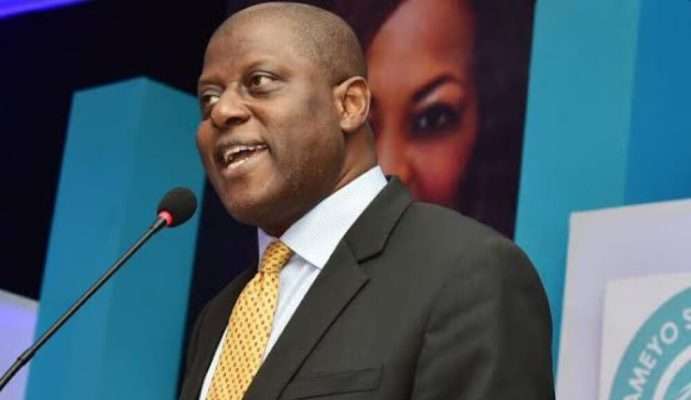Nigeria’s Economy Projected to Grow by 3.6% in 2025 as Reforms Take Root — World Bank

Written by SpringNewsNG
Nigeria is expected to record an economic growth rate of 3.6% in 2025, building on an estimated 3.4% expansion in 2024, according to the World Bank’s latest Africa’s Pulse report, released in April 2025. This positive forecast reflects the early impacts of macroeconomic reforms aimed at stabilising the country’s business environment.
In a more optimistic outlook than the International Monetary Fund (IMF), the World Bank attributes Nigeria’s recovery to strong performances in the non-oil sectors, particularly financial services, telecommunications, and ICT, along with a gradual rebound in oil production in line with OPEC+ targets.
The report also projects a further boost in economic growth to 3.8% by 2027, assuming reform momentum is maintained. “Economic growth is expected to remain moderate in Nigeria, increasing from 3.4% in 2024 to 3.6% in 2025, and slightly up to 3.8% by 2027,” the report stated.
On the contrary, the IMF remains cautious, projecting a slower growth of 3.0% in 2025 and a further decline to 2.7% in 2026, citing challenges such as structural constraints and weak oil revenue.
Inflation Trends and FX Reforms
The World Bank forecasts a decline in headline inflation to 22.1% in 2025, down from 26.6% in 2024, with a further drop to 15.9% by 2027. This outlook is based on Nigeria’s updated Consumer Price Index (CPI), rebased by the National Bureau of Statistics (NBS) in January 2025. The CPI base year was shifted from 2009 to 2024 to better reflect current consumption trends.
Despite some easing, inflation remains elevated, with cost-of-living pressures persisting. Meanwhile, the IMF estimates inflation will average 26.5% in 2025, rising sharply to 37.0% in 2026, blaming exchange rate volatility, supply constraints, and slow reform implementation.
The World Bank also identified the naira as one of Africa’s worst-performing currencies in 2024, following a 40% depreciation triggered by the government’s shift to a market-determined exchange rate. However, it notes that recent FX reforms have enhanced liquidity and helped stabilise the naira in early 2025.
Stronger External Position
Nigeria’s current account surplus is projected to improve slightly, from 9.2% of GDP in 2024 to 9.4% in 2026, supported by reduced imports, higher oil exports, and increased remittances. However, the IMF forecasts a narrower surplus of 6.9% in 2025 and 5.2% in 2026, warning of downside risks if global oil prices fall below Nigeria’s fiscal breakeven of $60 per barrel.
Meanwhile, Fitch Ratings and JP Morgan offered mixed assessments, with Fitch projecting an average surplus of 3.3% over 2025–2026. Data from the Central Bank of Nigeria (CBN) revealed a $6.83 billion balance of payments surplus in 2024, the first in three years, largely driven by a goods trade surplus of $13.17 billion.
Poverty Crisis Deepens
Despite being Africa’s largest economy by GDP, Nigeria now accounts for 15% of the world’s extremely poor population, with over 106 million people living below $2.15/day, the global extreme poverty benchmark.
The World Bank report warns that Nigeria’s poverty rate is on the rise, with an estimated 3.6 percentage point increase between 2022 and 2027, particularly affecting vulnerable groups in resource-rich and fragile economies. It places Nigeria at the center of the global poverty crisis.
“Sub-Saharan Africa is home to 80% of the world’s extreme poor,” the report noted, “and Nigeria alone accounts for about 19% of the region’s 560 million extremely poor.”
Other major contributors include the Democratic Republic of Congo (14%), Ethiopia (9%), and Sudan (6%). The report calls for urgent reform and improved service delivery in countries with fast-growing populations, like Nigeria and DRC.
Policy Response and Outlook
Although the Nigerian government has introduced social intervention programmes to combat poverty and food insecurity, implementation remains slow, with corruption and inefficiencies undermining progress.
PwC estimates that up to 13 million more Nigerians could fall into poverty in 2025 without decisive action.
The IMF’s Article IV consultation, concluded in mid-April 2025, acknowledged the government’s reform efforts but stressed that most Nigerians are yet to feel the impact, as poverty and hardship remain widespread.
As the country navigates ongoing economic reforms, both international institutions stress the importance of structural transformation, transparent governance, and inclusive growth strategies to unlock Nigeria’s full economic potential and reduce poverty.
For more updates on Nigeria’s economy, reforms, and policy trends, visit SpringNewsNG.






